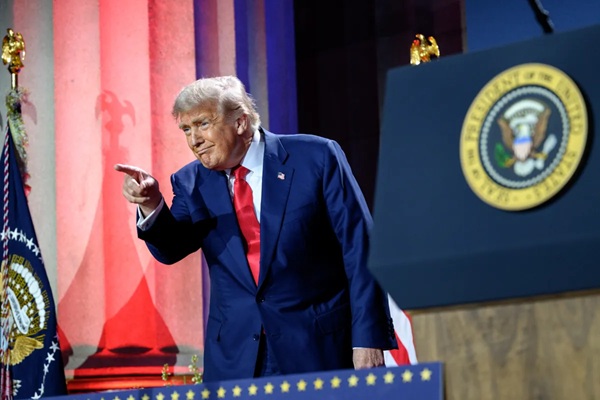.png)

Michael R. Strain, Director of Economic Policy Studies at the American Enterprise Institute, is the author of The American Dream Is Not Dead (But Populism Could Kill It)
November 17, 2025 at 4:26 PM IST
When I speak to college students about the problems with democratic socialism and populism, I often quote then-British Prime Minister Margaret Thatcher’s warning: With these economic policies, “you eventually run out of other people’s money.” Since this often produces quizzical looks, I then follow up with a quote from Thatcher’s 1983 address to the Conservative Party conference: “There is no such thing as public money, there is only taxpayers’ money.”
I mention the Iron Lady because last month was the centenary of her birth, which passed with remarkably little attention. She deserves better. A champion for free people and free markets, Thatcher was a political giant on both sides of the Atlantic, leading the Tories for 15 years and serving as prime minister of the United Kingdom from 1979 to 1990. Insofar as she is marginalized today, that is yet another reminder of how far the political right has strayed, ignoring not only her legacy but also that of her American contemporary, Ronald Reagan.
One need only scan recent headlines to see this. Consider, for example, US President Donald Trump’s suggestion that the government should send households $2,000 tariff rebate checks to address concerns about high prices. Thatcher and Reagan would have been appalled (as they would have been by the tariffs themselves). They also would strongly oppose the Trump administration’s decisions to take equity stakes in private companies and to commandeer others’ revenue streams, as well as its attacks on immigration. Whereas Thatcher and Reagan stood up to the Soviet Union, much of today’s Republican Party is isolationist, and some on the political right are in thrall to the dictator in the Kremlin.
But the differences go deeper than policy disagreements. Trump has long thought of the American people as victims who are helpless in the face of economic change imposed by hostile elites. In accepting the 2016 Republican Party’s nomination for president, he proclaimed: “I have joined the political arena so that the powerful can no longer beat up on people that cannot defend themselves.” The Republican establishment and conservative movement have lined up behind him and his politics of grievance.
By contrast, Thatcher championed individual ability and agency. As she explained in a 1975 speech: “We must build a society in which each citizen can develop his full potential, both for his own benefit and for the community as a whole, a society in which originality, skill, energy, and thrift are rewarded, in which we encourage rather than restrict the variety and richness of human nature.”
She also consistently conducted herself with dignity and decorum, as did Reagan, who was so diligent in upholding the dignity of his office that he insisted on walking himself into the emergency room after being shot, falling to the floor only once he was inside the hospital and out of public view.
Trump did display impressive and iconic leadership after he was shot last year. But that moment stands in stark contrast to the collapse of public dignity and the coarsening of political discourse that he has hastened. Just last month, the president of the United States posted an AI-generated video of a fighter jet dumping feces on Americans who oppose him. And again, where Trump leads, Republicans follow. Vice President JD Vance, for example, recently responded to a critic on X by calling him a “dipshit.”
Dignity, decorum, and seriousness matter in a democracy. Elected leaders who renounce them lose the confidence of those who are not already in their camp. It becomes more difficult for the country to come together to face adversity – be it a pandemic, a terrorist attack, an economic calamity, or a war – as leaders struggle to compromise to address policy challenges.
Under Trump’s watch, his MAGA (“Make America Great Again”) movement has served as a conduit for some of the ugliest forces in politics to make a run at the mainstream. Tucker Carlson’s recent interview of the Holocaust-denying, Hitler-admiring, white-nationalist, anti-liberal MAGA influencer Nick Fuentes was a case in point. Carlson has often used an aggressive interview style with opponents, but this time, he did not challenge his subject’s appalling and dangerous views. Nor was this the first time that Carlson had promoted anti-Semitism.
Carlson is no marginal figure. He sat with the Trump family at the 2024 Republican National Convention, where the party nominated Trump for president for the third time. After the conservative activist Charlie Kirk was assassinated, Vance hosted Kirk’s podcast and had Carlson on as a guest. Will the American right continue to stand by Carlson? The Heritage Foundation has. Will Vance?
While Trump has proven to be a strong ally of Israel, he won’t be around forever. Will the Carlsons of the right gain greater influence when he leaves the stage?
Thatcher and Reagan believed in the inherent dignity of each and every human being. A political movement that shares that belief cannot give any quarter to racists or anti-Semites. To embrace the latter is to renounce the former.
In her 1975 speech, Thatcher welcomed the fact that “a new debate is beginning – or perhaps I should say an old debate is being renewed – about the proper role of government” and the “attitudes” on which government rests. The silver lining in the dark cloud stalking the Republican Party is that a similar debate is on the horizon, as the fight over the right’s post-Trump future begins. Those of us who cherish the legacy of Thatcher and Reagan have much at stake, as do all Americans – and the world at large.
© Project Syndicate 1995–2025




